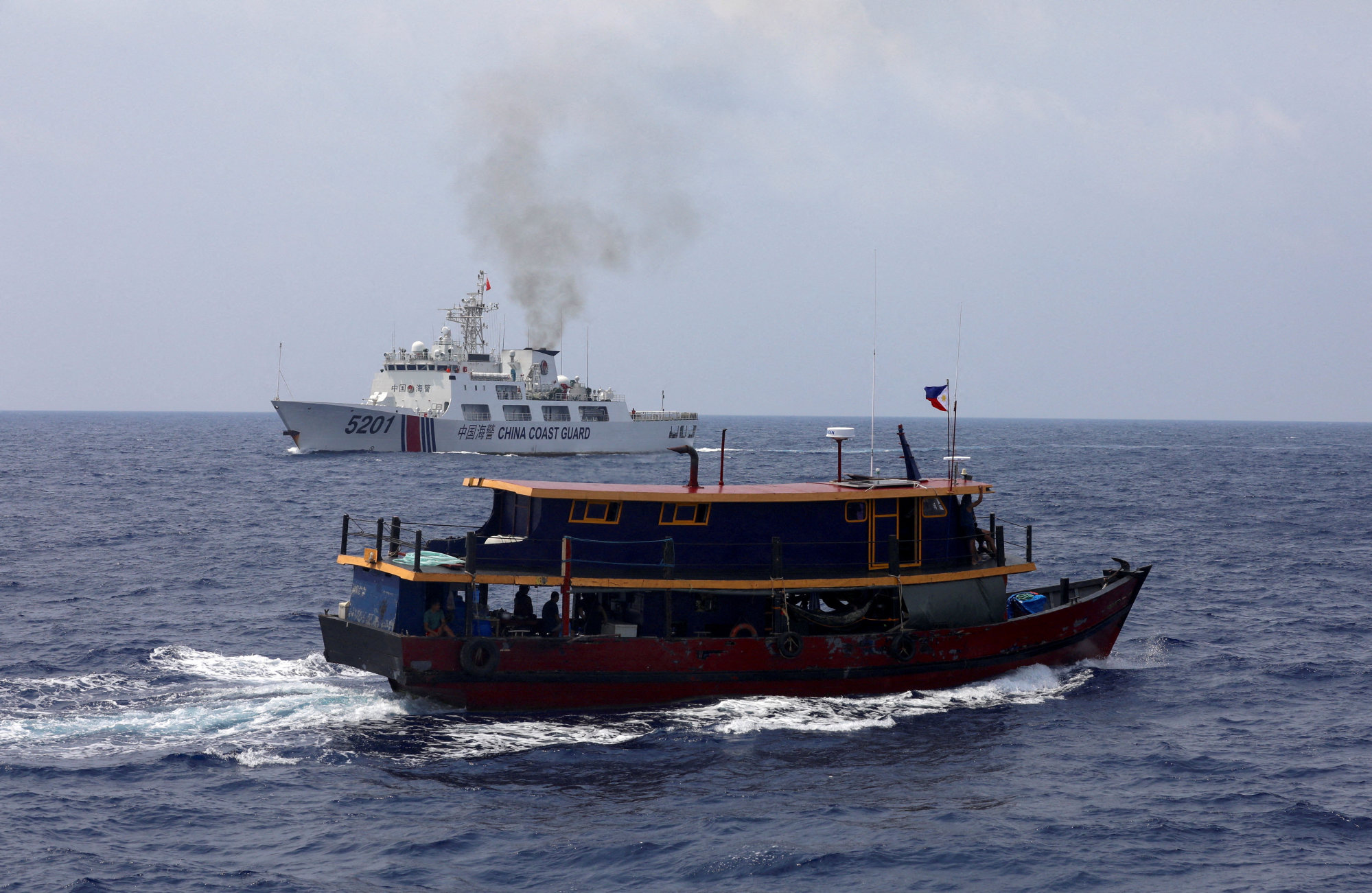
South China Sea: Philippines to explore oil-rich waters amid China tension: ‘it’s quite urgent that we start now’
- Energy exploration could be the next flashpoint in the South China Sea, where Beijing has laid a sweeping claim opposed by countries including the Philippines
- The Philippines imports almost all its fuel requirements, and has been trying to start energy exploration in its waters as a key local gas field nears depletion
His comments suggest that energy exploration could well be the next flashpoint in the territorial disputes in the South China Sea, where Beijing has laid a sweeping claim opposed by countries including the Philippines and rejected by an international tribunal in 2016. The Philippines, which imports almost all its fuel requirements, has been trying to start energy exploration in its territorial waters as a key local gas field nears depletion.
Philippines says it’s not provoking conflict, accuses China of ‘dangerous’ moves
“This could mean that they really want total domination and control over everything from free passage to resources, or they want to bear hug the Philippines to make them the sole joint venture partner in the exploration or exploitation of resources in this area,” Teodoro said.
“Their legal position is untenable and has been rejected by the whole world,” he said.

Since that January 2023 meeting in Beijing, relations between the two neighbours have become rocky, marked by increasingly dangerous encounters at the sea.
The Philippines will not allow any joint exploration that doesn’t recognise the nation’s right to exclusively exploit these resources, the defence chief said.
“Our role really is to secure the territorial integrity and sovereignty of the Philippines and to protect as much as we can the peaceful and unimpeded exploitation by Filipinos and legally allowable entities,” said Teodoro, a lawyer by training and a one-time presidential contender.
Marcos shrugs off China’s warning, says Philippines will assert sea rights
“A lot has been invested already on both sides,” he said, referring to the US and Philippine engagements. Ensuring security in the Indo-Pacific and rights of passage in the vital trade route benefits not only the US and its allies but the entire global economy, according to the defence minister.
“You’re dealing with a country without any openness, with opaqueness, with unpredictability, with no external indicators to show what its next move will be,” he said of China. As a result, countries like the Philippines have to be prepared all the time, which Teodoro said has kept him busy “hardening and building up our alliances” in line with Marcos’s foreign policy stance.
Deeper US-Philippines defence ties have drawn criticism from China, with its top diplomat warning Manila last month against colluding with “malicious external forces.”


